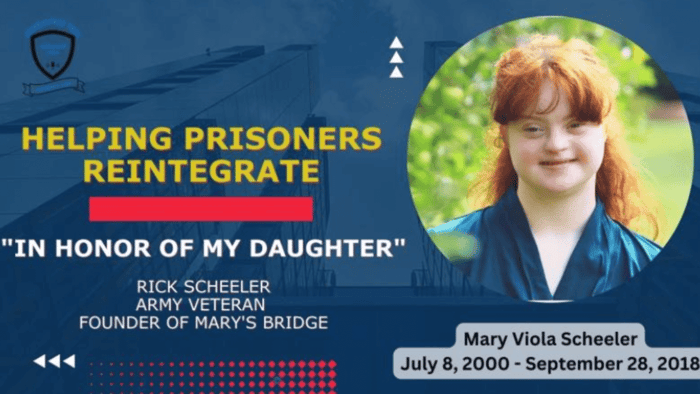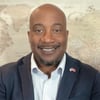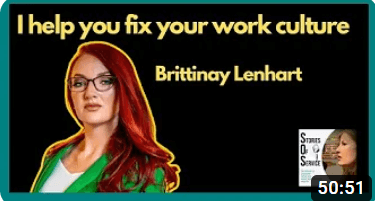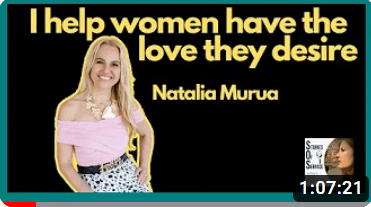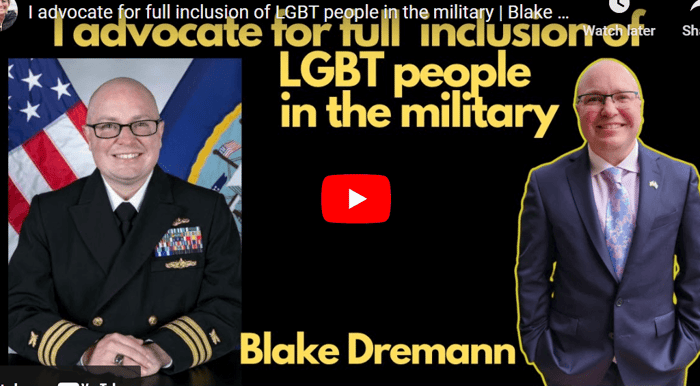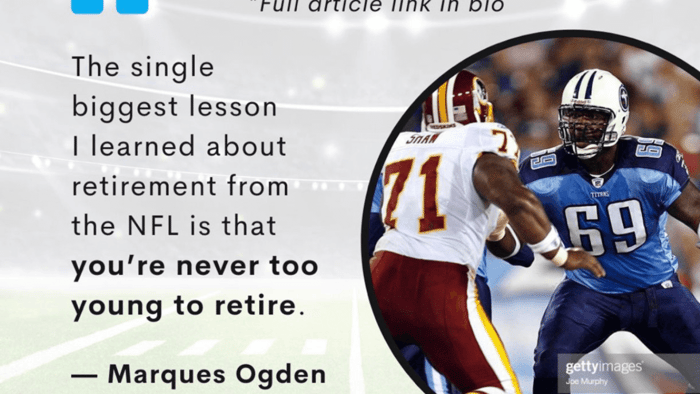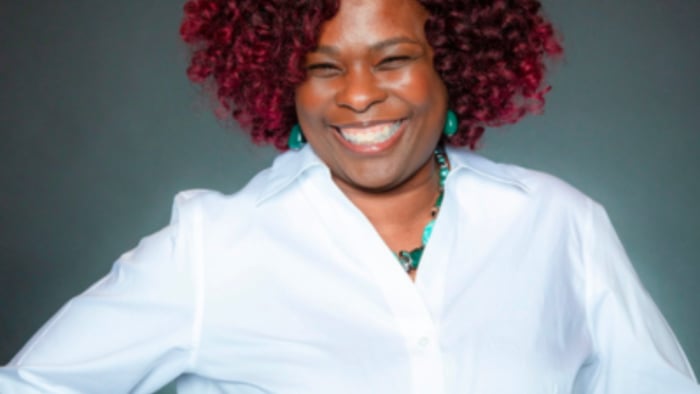Introduction
Welcome to the Unarmored Talk Podcast, and today's episode, From Tragedy to the UNTHINKABLE. I'm your host, Mario P. Fields and my guest is Rick Scheeler, a veteran and founder of Mary's Ridge, a nonprofit that provides a reentry program for men coming out of prison. Rick discusses the challenges of starting the nonprofit and the importance of helping those who are often overlooked, such as formerly incarcerated.
Throughout the conversation, Rick shares his personal journey, from his military service to his daughter's tragic death and how it led him to start Mary's Bridge. He emphasizes the need for healthy relationships with fathers and the importance of directing one's energy toward something positive. Rick also highlights the challenges of starting a nonprofit, from finding the right location to dealing with legal issues, and stresses the importance of perseverance and faith.
The podcast ends with a call to action for employers and real estate owners to consider giving ex-convicts a chance and to open their minds to the possibilities that exist. It serves as an inspiring and thought-provoking discussion about the importance of helping those in need and making a positive impact in the world.
Discussion Points
- Rick Scheeler's personal journey and passion for helping men transition back into society
- Challenges faced in starting and growing the Mary's Bridge organization
- The importance of taking action and not waiting for perfection when starting a non-profit organization.
- Seeking out mentors and building partnerships to provide crucial guidance and support.
- The reminder that a healthy society requires deep faith, healthy families, and generous philanthropy
Things to think about
Rick Scheeler offers advice for those in a similar position of starting and growing a non-profit organization. He encourages people to start with what they have and not wait until they know everything before getting started. He also emphasizes the importance of having mentors and partnerships to navigate the challenges that come with starting a new venture. Finally, he reminds us that a healthy democracy requires deep faith, healthy families, and generous philanthropy from individuals.
Advice for those in a similar position
Starting a non-profit organization can be overwhelming, but Rick Scheeler's advice offers a valuable perspective for those looking to make a difference in their community. His emphasis on starting with what you have and not waiting for perfection is an important reminder that taking action is often more important than having all the answers.
Additionally, seeking out mentors and building partnerships can provide crucial guidance and support as you navigate the challenges of starting and growing a new organization. Finally, Rick's reminder that a healthy society requires deep faith, healthy families, and generous philanthropy is a powerful call to action for individuals looking to make a positive impact in the world.
Feature Video - From Tragedy to the UNTHINKABLE: Mary's Bridge
Resources
Unarmored Talk Guest - Rick Scheeler
➡️ https://www.marysbridge.org/
➡️ https://www.linkedin.com/in/rickscheeler/
Unarmored Talk Host - Mario P. Fields:
Social Media Accounts: Parade Deck
Website: Still Serving, Inc.
Transcript: From Tragedy to the UNTHINKABLE
Disclaimer: This transcript was generated by an AI and may not be entirely accurate or free from errors. To watch the full episode visit: https://youtu.be/kE_FC0GTbJU
(00:22)
Everyone. Welcome back to Unarmored Talk. Podcast. I am your host and still your host, Mario P. Fields. And today's guest who is willing to remove his armor to help people develop an accurate way of thinking is Rick Scheeler.
(00:37)
What's going on, Rick? Mario, it's a pleasure. I've been looking forward to this. Thank you for having me. No, you're welcome. It seems like we started this journey, what, in 1990. It honestly, everyone, about eight seven or eight months.
(00:58)
But, Rick, I truly appreciate your patience with everything. We've been blessed to have guests lined up where it's taken about seven or eight months to get some amazing folks like Rick on the show. But before we get to our guest today again, ladies and gentlemen, everyone, thank you so much for all of our members on a YouTube channel.
(01:19)
We have grown to twelve members and we are right now generating just in memberships alone about $100 a month. That's being donated to Still Serving Incorporated, right? Making a difference in Pitt County, North Carolina.
(01:33)
The next check ceremony will be going on this fall right before the school year starts. So again, if contribute and Make A Difference, go on a YouTube channel, and become a member, I think it's like $2.99 a month, like $36 a year.
(01:48)
And let's make a Difference with all the guests from Unarmed Talk, all the folks that get on the YouTube channel. And with me, your host. Enough about the admin stuff. We are done with that. I think it's time to get to the real star of this show, right?
(02:05)
The real guest. Rick, ladies and gentlemen, rick is a veteran. Thank you for serving in the military, Rick. I appreciate that. It was an honor. Thank you. And he's also the founder and president of an amazing nonprofit we're going to get to that here in a minute.
(02:22)
Called Mary's Ridge. And he does more rick I don't have one of those special buttons, so I'm going to clap. Welcome to the show. Means a lot. Thank you, mario and I wanted to say I'm so glad you're all right.
(02:36)
We met not long before you got sick, and to watch what you went through in your recovery and how well you've done is really an inspiration. No, I thank you. I have Christian beliefs, so I thank God, too, as well.
(02:49)
My belief in God. But I appreciate it. But, hey, can you tell the listeners and viewers just a little bit about yourself? Rick well, yeah, so I was in the army infantry. I signed up for the infantry not knowing what I was getting into.
(03:04)
And not long after stepping off the bus, I thought to myself, I think I made a mistake. But it turned out to be an amazing three years. I served in the old Guard, which does a lot of the ceremonies for the army and for the military.
(03:18)
We did a lot of funerals, a lot of retirements, and then I went to the color guard, so I got to go to the White House and Congress and other just amazing places. It was a little bit like forest gump, just being in the right place with the right and so I did that for three years.
(03:32)
And then I went to college, got a degree in biotechnology, of all things, and then ended up in finance, which is kind of its own show, if you will. But I did work in biotechnology for a little bit, working on the human genome back in the.
(03:54)
Um, part of that transition is we we made a big move after I witnessed the plane hit the Pentagon on 911, so and a couple other forest moments, if you will. And so I've been in financial services for the last 20 years, and then about almost five years ago when I say we, my daughter and I, my wife and I lost our oldest daughter Mary in a car accident, and that really shook us up.
(04:22)
She was the second of six children. We have six kids all together. My oldest is now in the Air Force out in Boston. He's a second lieutenant. I learned my lesson going into the army, and then our youngest is ten.
(04:34)
So after losing her, that really changed things up and did a lot of soul searching, which led to what we'll talk about a little bit today. But I'll take a pause there. No, thanks for your son continuing that lineage of serving right in the military in the armed forces.
(04:56)
So truly appreciate that what you and your lovely bride have done set a wonderful example, I believe, for your six children. And let's talk about Mary. Let's Talk about Mary. Mary's Bridge nonprofit.
(05:12)
I love the mission. Again, I'm 100% behind what you're doing. I'm also a new donor, ladies and gentlemen, and that's my choice, not Rick. I want to get behind them, and hopefully you guys do as well.
(05:24)
Rick, how did it come about? Yes. So we lost Mary very unexpected. She had down citrus, and she was coming home from a local store and I guess wasn't paying attention, and the driver didn't see her. And she was struck and was knocked unconscious instantly and died the next day.
(05:44)
And as you can imagine, that just tore us up. But we had a lot of other responsibilities with the other kids. We couldn't just afford. Crawl up, which was what we felt like doing. And I obviously have a business, too, so my wife did an amazing job helping us keep that going.
(06:03)
And I eventually bought some property that was kind of isolated. My idea was I just wanted a place to go and think and be away from everything when I had a little free time. And I did that for about a year, just kind of cutting things and puts it around on the property.
(06:19)
They had a house, but I still haven't spent the night there. And one thing led to another, and I'm not even exactly sure how it happened, but it's turned into this reentry program for right now, men coming out of prison.
(06:38)
The idea was just to kind of be a halfway house and see what happened, but it's really turning into something much larger than that now. And when you just had this and I just had this imagination of you sitting on you going out to this property, some peace and quiet, go, man, I haven't even spent the night in this house.
(07:00)
But why those people in need? Why there's so many people in need in the world, but why those particular people in need? Yeah, I mean, part of it is it seems like that's the work that needs to be done.
(07:17)
And part of it is when I read Matthew 25, talks about a bunch of different groups of people, and one of them is prisoners. And it seems to me that while I was out there and thinking, it just struck me how much god loves people.
(07:31)
But the less affluent somebody is, it seems, the greater he identifies with them. And if you just think about who are the people that are kind of the bottom of the deal, like, it's even worse than homelessness.
(07:47)
I mean, there there's a certain. Kind of the mentality is like, these are thugs getting what they deserve almost. And then if you look in that group, there's even sex offenders who even the thugs getting what they deserve can't stand.
(08:05)
And I say that all in quotes. I mean, if you look at the back stories of these men, they're probably doing much better than most of us would do if we were in their situation. And if you look at what they're left with when they come out, it actually reminds me a little bit of when a lot of guys get out of the military, they're just going to drop down the front street saying, good luck.
(08:27)
Hope it works out for you. But when you have a record, it just makes getting a job and getting housing. And a lot of times you can't even get a driver's license because of some baggage you're still carrying around with you.
(08:40)
So there's no transportation, there's no housing, there's no employment, and then you go back to your friends, and then it doesn't take long to end up back in jail after causing some problems. And so it's just this horrible cycle.
(08:54)
And so it just felt like, you know what? Let's see what happens. Let's try to do something. And just one person at a time really is where we're at right now with it. Yeah. And I like, rick, how you said, too, after mary passed away, you had a choice.
(09:10)
You and your wife could have just kind of went into a cocoon, but you guys did not. And then as you get this land for you to find some serenity. Yeah. Rick goes, I'm not selfish. I'm going to find a need in the world through god's grace, and I'm going to find a group of people who all they need is someone to give them a little bit of hope.
(09:41)
And here you are. Like you said, mario, I can't even really explain it, but have. Interacted have you gone to any local prisons yet and interacted with some of the prisoners who's transitioning out and being that person, they have no idea who you are, but they can see you care.
(10:01)
What was that like? Yeah, well, if you go to prisons, you'll find a very few of them have a healthy relationship with their father, if they have a relationship at all with their father. Right. And it strikes me that at a father that really helps constrain the energy of their kids and then direct it towards something healthy.
(10:22)
And men, especially if you look, when I say guys, I mean mostly guys. There are women in prison, but it's maybe ten or 15%, something like that. The vast majority are men and men without fathers. It seems like we have a fire within us that if it's not directed and channeled, it's just going to burn us up and probably something else too.
(10:43)
And so what I noticed going into the I don't spend a lot of time in the prison. I spend much more time I've been but I spend much more time with guys that are coming out and helping them, almost being a father to them.
(10:56)
I lost my dad when I was young, when I was eleven, and it was drill sergeants that helped constrain and direct that energy for me. So I know that we talked before the show that you had done that and that's incredible what you've done for probably thousands and thousands of men around the country.
(11:14)
So. Thank you, Mario. You're welcome. And so we're trying to provide that same thing. And what I see is that it's not so much even the ones that I see, it's not so much a mal intent. They just don't understand the physics of how things life.
(11:30)
It's like walking off a house and getting mad because you broke your leg. And it's like, well, I get that you want to walk off the house and not break your leg, but that's just the way that it works.
(11:38)
Like it's a guy who goes out, gets drunk, gets into a fight, and then he's in jail and going, I didn't start it. But the number of decisions that led to that. Um, outcome at any point, it could have been diffused.
(11:52)
If you get up at six, you work hard, you go to bed, you do it again, your chances of getting in fight at a bar have been greatly diminished. And so a lot of it is just helping people understand what good decisions look like and how that can lead to something good in their life.
(12:09)
And I like that too. I know in the preamble of our constitution in the United States, it talks about austerity, and it's refreshing to meet professionals who believe in doing things for not just the current generation, but for generations to come, and creating and setting conditions for success, no matter what state, no matter where you are in your life.
(12:33)
I know we're not all perfect. I'm five foot two and shrinking. So definitely we all have our own challenges. And speaking of challenges, what are some. Of the challenges, emotionally or physically, that you have experienced starting up this nonprofit, finding it, and then watching it grow over the year or so?
(12:57)
Yeah. So we're just in the beginning, and it's totally crazy. I love how Elon Musk talked about starting his companies. He's like, the chances of it succeeding was almost zero. But he said something to the effect that if something's important enough, it doesn't matter how small the odds, you should still try.
(13:13)
And I think that's pretty inspiring, personally. And so it seemed like the work needs to be done, and it seemed like I had the means to at least give it a shot. And I've been fortunate to have some mentors around me to help kind of point me in the right direction.
(13:31)
But it is crazy. Who knows if it works? But so far we have two residents, and we're trying to bring in a third. And we have a three bedroom house. I'd like to get it up to five, but there are all kinds of I just got a call from the.
(13:48)
A parole officer. Today, we have a third guy who's looking to come in. He's got a sex offense, and we've got one guy with a sex offense, one guy without right now. And they just don't want two guys in there with that type of offense, even though we're surrounded by all kinds of land letters go out to neighbors, and nobody wants that, and they don't want to get that.
(14:09)
And if anything happens, there's all this risk involved. So there's constant challenges, but it's just trying to figure out how do you get around those. I mean, the other day, to give you an example, I get a call in the middle of the day from this parole officer saying, hey, if you're not here in ten minutes, these guys are going to jail for nine months.
(14:30)
What? Yeah, because before I had let anybody move in, I bought some ammo and put it in a cabinet that I completely forgot about. And they found it? Yeah, they didn't like that too much, so I jumped off the meeting I was in and rushed over there.
(14:50)
Fortunately, it's only 2 miles from my house, and I happened to be working from home and straightened it out. But there must have been, like, ten guys, ten cops there, and both residents were in handcuffs.
(15:01)
I mean, it was no joke. Oh, my goodness. Yeah. I don't know what I'm doing. I told him, like, I don't know what I'm doing. I just seen work and work that needs to be done, and we're trying, and we've created a lot of partnerships with different ministries and churches and businesses and the government, but still, it's like starting a business.
(15:24)
If you knew how to do it, then you can't wait till know how to do it to get started. That's part of the learning curve, in my view. You know, in the marines, we talk about courage a lot, being courageous, and that's in peacetime and if the nation needs us to go to war.
(15:42)
But I used to always say, you don't need to be in the military. To demonstrate you have courage and Rick, just listen, just listening to your journey and going, look, here's the deal. I know something's got to be done.
(16:00)
I don't know what that means, but I'm going to put some effort and work and collaborate to at least make an attempt to make a difference for someone trans transitioning out of the prison system. And however that lands, I'm still going to pray and we're going to go for it, man, I salute you for that.
(16:25)
Wow. Well, I'm always praying for courage and wisdom and I've started praying for humility too, because man, I let things go to my head so fast. But yeah, I just feel like there's all this political contention in the country, there's all this division and part of me feels like, gosh, if we just started getting to work things would start getting better pretty fast.
(16:54)
In my view, a healthy democracy requires some things. It requires us to have a deep faith, it requires us to have a healthy family, requires generous philanthropy. It just requires people, you and I, and I know you believe in this too to create a healthy country.
(17:13)
Otherwise governments and corporations take over everything and that doesn't create the society that we want. Yeah, no, Rick, I appreciate you know, I used to say years ago and just listening to you remind me of this.
(17:27)
I used to say, what can I do to make a difference? Every day I wake up but now I don't say those words anymore. I say what can be done and listening to you and even you and I getting together, it's people who care about people and what can be done together.
(17:45)
To at least make a positive impact worldwide. While we're living. While we're living. Rick, looking back, looking back from when you started, when this vision, this imagination, my friend, just popped in your brain, and now we can touch it.
(18:05)
You conceptualize it. If you had to give the listeners and viewers anything, looking back, what one or two things would you tell them? I would say that it's okay to kind of be in the desert, wandering around, not knowing what to do.
(18:23)
It can feel frustrating. And that's where I was there for, I don't know, a year and a half or two years, reading a lot, praying a lot, journaling a lot, just trying to figure out what direction to go in.
(18:34)
And looking back, god really uses that time in the desert. Develop us and prepare us, and then something will pop up and just follow up on those loose ends. It's interesting. This was just one of a bunch of loose ends that I pulled on, and one thing led to another.
(18:51)
Wow. I would say that embrace the wilderness. Well, you know what to do, everyone. It was a choice. He didn't have to do it. Rick did not have to do it. But he chose to dedicate some effort and time to make a difference while he's on this earth.
(19:09)
And I truly appreciate it. There will be lots of banners with Mary's Bridge website in this video production. If you're listening to this production, it will be in the show notes. How else can people find you, Rick?
(19:24)
You? Yeah. My website, which is Marybridge.org, it's a 501. I just want to say if there are employers out there, if there are real estate owners out there, if you have an apartment building. Just really take the time to get to know potential returning citizens or ex cons.
(19:49)
You might be surprised. I've been so impressed with some of the people that I've met that are part of that community and I think there's still some bigotry when it comes to that and I think we need to kind of open our mind and see the possibilities that are there.
(20:05)
Thanks so much, Rick. And you guys heard it all. We're not none of us are perfect. And all we need is someone, no matter what part of the journey of our life, just give us a chance. And Rick, you are doing that right now to two residents and I believe there will be a lot more residents as you go down this journey.
(20:25)
But thank you so much again, Rick, for coming on the show. I know you are having fun, I won't say busy because you are having fun changing the world and I appreciate you everyone. So again, it's been a couple of weeks and then we'll get ready to get ready for the next episode in a couple of weeks.
(20:43)
But until then, you guys be safe. God bless every single one of you and your families and we'll see you soon. Bye.
